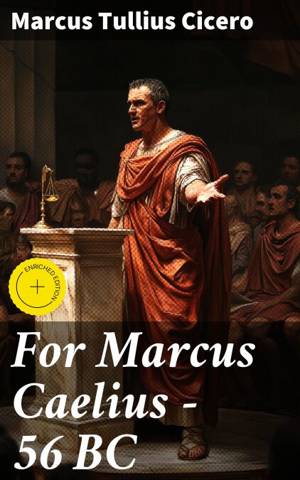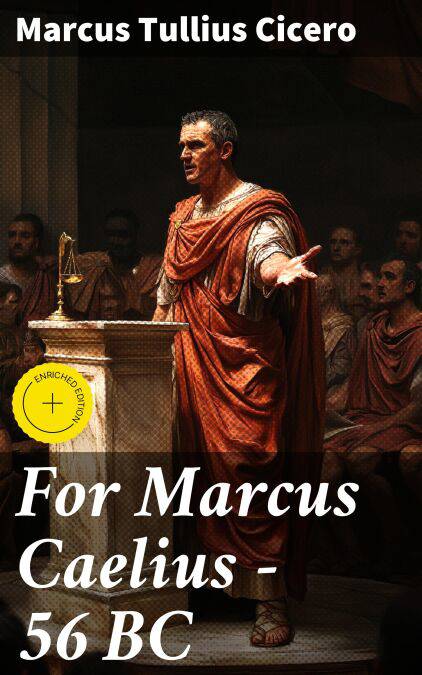
- Afhalen na 1 uur in een winkel met voorraad
- Gratis thuislevering in België vanaf € 30
- Ruim aanbod met 7 miljoen producten
- Afhalen na 1 uur in een winkel met voorraad
- Gratis thuislevering in België vanaf € 30
- Ruim aanbod met 7 miljoen producten
Zoeken
For Marcus Caelius — 56 BC E-BOOK
A Powerful Defense Speech in Ancient Rome
Marcus Tullius Cicero
E-book | Engels
€ 1,99
+ 1 punten
Omschrijving
In "For Marcus Caelius," written in 56 BC, Marcus Tullius Cicero masterfully employs the art of rhetoric to defend his client, Caelius Rufus, against the charges of murder and is a striking example of Roman oratory. Cicero's work is characterized by its eloquent prose and employs a blend of emotional appeal and logical argumentation, well-studied in the context of Roman legal practices and the political environment of late Republic Rome. The defense highlights not only the case at hand but also reflects Cicero's deep anxieties about societal morality and the tumultuous politics of his time, illustrating the tense relationships between personal ambitions and public duties that defined Roman life. Cicero, a prominent statesman and philosopher, was deeply entrenched in the legal and political sphere of Rome. His experiences as a consul and his involvement in high-stakes legal battles played a significant role in shaping his rhetorical style and philosophical outlook. "For Marcus Caelius" not only showcases Cicero'Äôs skills as an orator but also provides insight into his views on justice, ethics, and the complexities of human character, views that were informed by his upbringing and the turbulent historical context of Rome. This book is recommended for readers interested in Roman history, rhetoric, and legal philosophy. Cicero's arguments not only articulate a defense of Caelius but also provoke timeless questions about justice and morality, making this text relevant for contemporary discussions. Engage with Cicero's intellectual legacy and appreciate the nuances of human relations as they unfold in this compelling legal drama.
Specificaties
Betrokkenen
- Auteur(s):
- Vertaler(s):
- Uitgeverij:
Inhoud
- Aantal bladzijden:
- 36
- Taal:
- Engels
Eigenschappen
- Productcode (EAN):
- 4064066465568
- Verschijningsdatum:
- 9/04/2021
- Uitvoering:
- E-book
- Beveiligd met:
- Digital watermarking
- Formaat:
- ePub

Alleen bij Standaard Boekhandel
+ 1 punten op je klantenkaart van Standaard Boekhandel
Beoordelingen
We publiceren alleen reviews die voldoen aan de voorwaarden voor reviews. Bekijk onze voorwaarden voor reviews.







